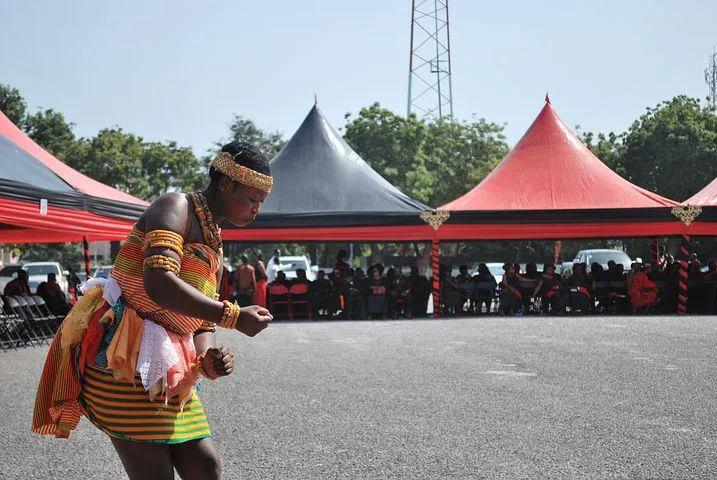Festival is an important event in every culture and has a strong connection between the living and the dead. In some instances, it serves as a moment of reflection on the past, be it a victory on an aggressor or a humiliating defeat at the hands of a great power. There is no doubt that festival marks an important event in a societies history that is why it is instituted to remember such an event.

A heterogeneous society like Ghana has several tribes with each having a distinct festival of its own. Even though some ethnic groups such as the Akans have similar festival, there is variation in the way it is celebrated as well as the history behind it.As a young boy who grew up at Aburi-Akuapem, I have witness the celebration of Odwira festival for several times and thus, I will try my best to relate than to give a narration that is out there in the public space particularly the internet.
Odwira festival is not an event that happens spontaneous but rather it is a long process or series of event that eventual culminate with a grand debar.
Odwira festival starts with a 40 day mediation by the chiefs and priests where a day is selected a day for Adae. Adae is basically a ban on drumming and other activities that are noisy such as funerals.Adae is meant to make the gods rest and be fortified before the actual festival. This period is also used to settle personal grievances and bickering among family relatives so that such disputing parties can enter into the actual festival without harboring any ills against each other. This period lasts for six weeks and then, the ban on noise making is lifted.
On the eve of the lifting of the ban on noise making, a short ceremony is done called Odehuro where mashed yam is given to the gods for blessing of new yam harvest as well as the blessings given to the people. Libation is poured at a lake called Osudum.
On Monday, a visit is made to a stream called kobe where to gods are presented with eggs and mashed yam. Libation is poured and the blessings of the gods are sorted for the town and its people. All the chiefs in the town present food to the gods and this is carried through the town and sent to the stream where it is presented too the stream gods.
On Tuesday, all dead relatives and ancestors are remembered in every family house. It also serves as a day for performing funerals of persons whose funeral were postpone due to their importance in the family. Libation is poured to ancestors and the dress code for the day is black or red which indicates grief.
On Wednesday, fire is set in every house and this indicates merry making and cooking. Foods of different kinds are cooked and served to visitors and family ones who had come back because of the festival. Merry making continues from Wednesday through to Saturday where a grand durbar is hosted at the prestigious Aburi Botanical Gardens. On this day, chiefs are carried in a palanquin and are dressed in a typical African cloths with display of dances and drumming that speaks to the soul and communicate to those who understands it.
Odwira is celebrated by the Akuapems and other Akan groups such as the Akwamu. The festival is celebrated at the beginning of the Akan lunar calendar when falls between September and October. The main purpose of the odwira is to cleanse and purified the people and the land as the gods ushers them into the new season where foods are harvested.